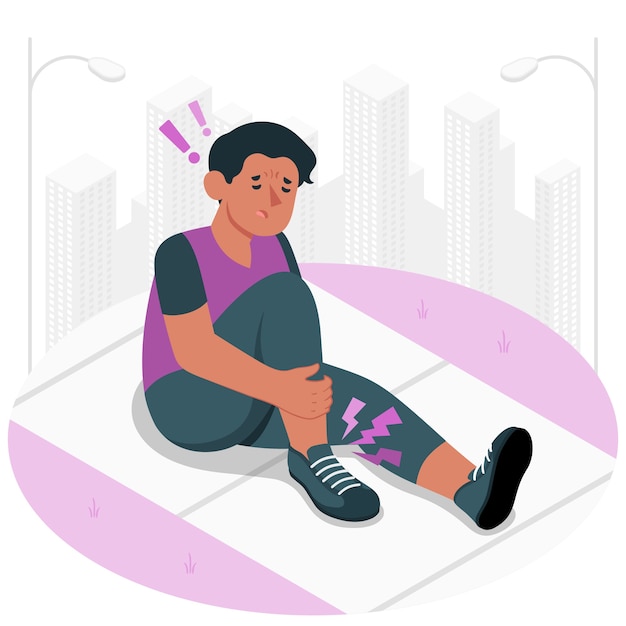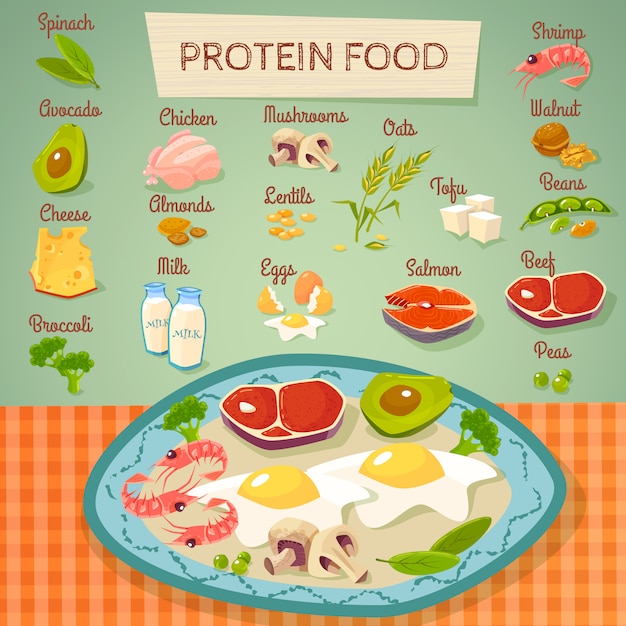Protein is essential for nearly every function in the human body—from building muscle to supporting the immune system. Yet, many people don’t realize how easily protein deficiency can develop, especially if their diet lacks variety or they have certain health conditions.
Protein deficiency symptoms can range from mild fatigue and muscle weakness to more serious concerns like hair loss, slow wound healing, and weakened immunity. Over time, these issues can impact your ability to recover from illness or injury and affect your overall health.
In this blog, we break down the warning signs of protein deficiency, why it matters, and how to increase your intake through diet and supplementation.
Why Is Protein Important for Your Health?
Protein is made up of amino acids, which are the building blocks of tissues, muscles, enzymes, and hormones. It plays a critical role in:
- Muscle maintenance and growth
- Tissue repair and wound healing
- Immune system support
- Hormone and enzyme production
- Hair, skin, and nail health
Without enough protein, the body begins breaking down muscle tissue for energy, compromising strength, recovery, and immune defense.
What Causes Protein Deficiency?
While true protein deficiency is rare in developed countries, low protein intake can still happen due to:
- Restrictive diets(vegan or vegetarian without balanced planning)
- Chronic illnesses(kidney disease, liver disease, cancer)
- Digestive disorders(Crohn’s disease, celiac disease)
- Aging, which reduces appetite and protein absorption
- Frequent illnesses or surgeries, increasing protein needs
- High physical activity levelswithout adequate protein replacement
If you’re unsure whether your diet meets your protein needs, it’s important to watch for protein deficiency symptoms and adjust your intake accordingly.
Common Protein Deficiency Symptoms

Protein deficiency often develops gradually, and symptoms may not be noticeable right away. However, as the body’s protein stores are depleted, certain signs will start to appear.
Key Protein Deficiency Symptoms Include:
- Muscle Loss and Weakness
Protein is essential for maintaining muscle mass. When the body lacks protein, it starts breaking down muscle tissue for fuel, leading to muscle wasting and weakness.
- Fatigue and Low Energy
Without enough protein, your body struggles to generate energy, leaving you feeling tired, sluggish, and unable to perform daily tasks.
- Hair Thinning and Hair Loss
Protein supports hair growth and strength. Deficiency can lead to brittle hair, excessive shedding, or hair loss.
- Slow Wound Healing
Protein helps rebuild tissue and fight infections. Wounds, cuts, or injuries may heal more slowly when protein is lacking.
- Weakened Immune Function
Protein is crucial for producing immune cells. Deficiency can impair your ability to fight infections, making you prone to frequent colds, illnesses, or lingering symptoms.
- Edema (Swelling)
In severe cases, protein deficiency may cause fluid accumulation in the tissues, leading to swollen feet, ankles, or hands.
- Brittle Nails and Skin Issues
Nails may become thin, weak, or ridged. Skin may lose elasticity or appear flaky and dry due to lack of protein needed for collagen production.
Recognizing these protein deficiency symptoms early is essential to prevent long-term health issues.
How Protein Deficiency Affects Recovery and Immunity

One of the most serious consequences of protein deficiency is impaired recovery. Your body requires protein to repair damaged tissues, build new cells, and mount an immune response during illness or injury.
Risks Include:
- Longer recovery timesfrom surgery, injuries, or infections
- Increased risk of complicationsafter medical procedures
- Higher susceptibility to illnessdue to weakened immunity
- Muscle loss, making physical therapy or rehabilitation harder
This is why many healthcare providers recommend focusing on protein intake before and after surgery, during illness, or as part of a recovery plan.
The Link Between Protein Deficiency and Hair Loss
Hair follicles are mostly made of protein, specifically keratin. Without adequate protein, the body may divert nutrients away from hair production toward essential functions.
Signs of protein-related hair loss include:
- Thinning hair or bald patches
- Hair shedding more than usual
- Dry, brittle hair texture
Restoring protein levels often helps improve hair health over time.
Dietary Sources to Improve Protein Intake

The good news is that protein deficiency is usually reversible with dietary adjustments. Both animal and plant-based foods can supply your daily protein needs.
Best Protein-Rich Foods:
- Lean meats– Chicken, turkey, beef
- Fish and seafood– Salmon, tuna, shrimp
- Eggs– High in complete proteins and vitamins
- Dairy– Greek yogurt, cheese, milk
- Legumes– Lentils, chickpeas, black beans
- Nuts and seeds– Almonds, peanuts, chia seeds
- Soy products– Tofu, tempeh, edamame
- Whole grains– Quinoa, oats, brown rice
Plant-based eaters should mix various protein sources to ensure they get all essential amino acids.
When to Consider Protein Supplements
If you struggle to meet your protein needs through food alone—especially during illness, recovery, or heavy training—protein supplements can help.
Options Include:
- Whey protein powders
- Plant-based protein powders(pea, hemp, soy)
- Collagen supplementsfor skin and joint health
- Ready-to-drink protein shakes
Always consult a healthcare provider before starting supplements, especially if you have underlying health conditions.
Who’s Most at Risk of Protein Deficiency?
Certain groups should be more mindful of their protein intake due to higher risks of deficiency:
- Older adults
- Athletes or highly active individuals
- Vegans and vegetarians
- People recovering from surgery or illness
- Pregnant and breastfeeding women
- Patients with chronic illnesses
For anyone in these categories, monitoring protein levels and addressing protein deficiency symptoms early can prevent health complications.
When to Seek Medical Help
If you notice signs like persistent fatigue, frequent illnesses, slow wound healing, or unexplained hair loss, it’s time to seek medical guidance.
A healthcare provider may recommend:
- Blood tests to check protein levels
- Dietary assessments
- Protein supplementation plans
Additionally, if your symptoms are impacting your ability to work or attend school, official medical documentation may be required.

Protein is essential for muscle strength, immune defense, and overall recovery. Ignoring protein deficiency symptoms can lead to long-term health issues like muscle loss, fatigue, weakened immunity, and slow healing.
The good news? Protein deficiency is manageable with proper dietary changes, supplementation, and support. If health challenges affect your ability to work or attend school, My Dr’s Note is ready to assist.
Get a Real Doctor’s Note Online with My Dr’s Note
Experiencing protein deficiency symptoms may require rest, recovery time, or follow-up appointments. If you need verified documentation, My Dr’s Note provides a real doctor’s note for work or school — quick, secure, and legally valid.
Whether you need:
- A medical certificate for leave
- FMLA certification
We’re here to help. Our service ensures you can buy a doctor’s note online without hassle, allowing you to focus on recovery while meeting school or work requirements.
Get in touch today to get a real doctor’s note online and protect your health while handling your responsibilities with confidence.


